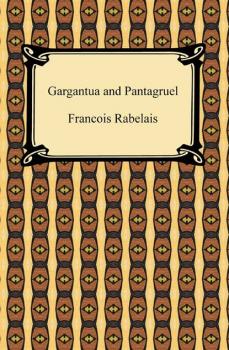Francois Rabelais
Список книг автора Francois RabelaisThe Third Book
"The Third Book" by François Rabelais (translated by Thomas Urquhart, Peter Antony Motteux). Published by Good Press. Good Press publishes a wide range of titles that encompasses every genre. From well-known classics & literary fiction and non-fiction to forgotten−or yet undiscovered gems−of world literature, we issue the books that need to be read. Each Good Press edition has been meticulously edited and formatted to boost readability for all e-readers and devices. Our goal is to produce eBooks that are user-friendly and accessible to everyone in a high-quality digital format.
The Fourth Book
"The Fourth Book" by François Rabelais (translated by Thomas Urquhart and Peter Antony Motteux). Published by Good Press. Good Press publishes a wide range of titles that encompasses every genre. From well-known classics & literary fiction and non-fiction to forgotten−or yet undiscovered gems−of world literature, we issue the books that need to be read. Each Good Press edition has been meticulously edited and formatted to boost readability for all e-readers and devices. Our goal is to produce eBooks that are user-friendly and accessible to everyone in a high-quality digital format.
Gargantua & Pantagruel (French Literature Classic)
Gargantua and Pantagruel is a pentalogy of novels which tells of the adventures of two giants, Gargantua and his son Pantagruel. The book is written in an amusing, extravagant, and satirical vein, and features much crudity, scatological humor, and violence.
Gargantua and Pantagruel
"Gargantua and Pantagruel" by François Rabelais (translated by Sir Thomas Urquhart, Peter Anthony Motteux). Published by Good Press. Good Press publishes a wide range of titles that encompasses every genre. From well-known classics & literary fiction and non-fiction to forgotten−or yet undiscovered gems−of world literature, we issue the books that need to be read. Each Good Press edition has been meticulously edited and formatted to boost readability for all e-readers and devices. Our goal is to produce eBooks that are user-friendly and accessible to everyone in a high-quality digital format.
Gargantua and Pantagruel
An elaborate parody written in the 16th century, «Gargantua and Pantagruel» is a comic blend of energetic realism and carnival fantasy. The two main characters are giants, a father and his son, who have numerous adventures. Many different types of people are satirized during their chivalric exploits, from lawyers to theologians, generals to monarchs, with humor that is often grotesque or obscene. Intertwined with this crude comedy, however, is the wisdom of Renaissance learning, which exposes countless examples of human foolishness. Divided into two volumes, one describes a sullied giant who grows into a grand knight and prince, and the other portrays his erudite son who himself becomes a Renaissance Socrates. Rabelais' work is full of freedom and laughter, as well as a certain understanding that will give readers a renewed worldview.
Gargantua and Pantagruel
An elaborate parody written by the French Renaissance humanist, writer, Greek scholar, and physician Francois Rabelais, “Gargantua and Pantagruel” is a comic blend of energetic realism and carnival fantasy. First published in1532, “Gargantua and Pantagruel” relates the fantastical tales of its titular characters, Gargantua, a giant who becomes a sophisticated and cultured Christian knight, and his son Pantagruel, also a giant, who grows into a learned philosopher similar to Socrates. Many different types of people are satirized during their chivalric exploits, from lawyers to theologians, generals to monarchs, with humor that is often grotesque and was considered obscene when it first appeared. Intertwined with this crude comedy, however, is the wisdom of Renaissance learning, which exposes countless examples of human foolishness. Comprised of five books, the first tells the story of Gargantua and the second through fifth relate that of his son, Pantagruel. Rabelais’s knowledge of Greek inspired him to invent hundreds of new words, many of which became part of the French language in this entertaining, irreverent, clever, and timeless masterpiece.
Gargantua and Pantagruel
The Life of Gargantua and of Pantagruel is a pentalogy of novels written in the 16th century by François Rabelais, which tells of the adventures of two giants, Gargantua and his son Pantagruel. The text is written in an amusing, extravagant, and satirical vein, and features much crudity, scatological humor, and violence. The censors of the Collège de la Sorbonne stigmatized it as obscene, and in a social climate of increasing religious oppression, it was treated with suspicion, and contemporaries avoided mentioning it. According to Rabelais, the philosophy of his giant Pantagruel, «Pantagruelism», is rooted in «a certain gaiety of mind pickled in the scorn of fortuitous things».
Rabelais had studied Ancient Greek and he applied it in inventing hundreds of new words in the text, some of which became part of the French language. Wordplay and risqué humor abound in his writing.









